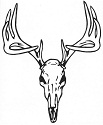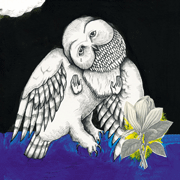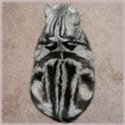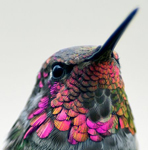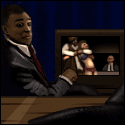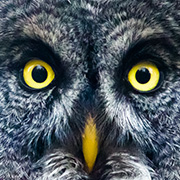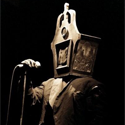|
I sprained my ankle birding yesterday. The nerdiest injury. In my defense it was a Summer Tanager. I got 3 x-rays, got my foot all wrapped up and now I can't do anything. Actually what happened was I jumped over a gate and my left foot landed on a perfectly positioned large pointy rock concealed by tall grass. I laid in the grass for a while cursing silently. Then I walked back home because this stupidly happened about 150 yards from my house.
|
|
|
|

|
| # ? Apr 19, 2024 21:09 |
|
That really sucks. I do a lot of hikes on my own and that's the kind of thing that gives me nightmares.
|
|
|
|
BeastOfExmoor posted:
Yup- if you get on the local sightings list serve people might reference places like "Frank's Dump" or "Mt. Trashmore". Hopefully the local Audubon will have a list online of how to get to those places. re: pishing- sometimes it works better than others. Some bird are much more prone to respond- wrens & chickadees & kinglets will often come in to investigate, a lot of sparrows seem to pop up for 2 seconds then disappear again, and a lot of birds will just plain ignore you. Don't take it personally. Sorry razz- what a bummer!
|
|
|
|
There seems to be lots of birders around. Nice! There seems also to be birders with completely different approaches to their pasttime, which is always interesting. I'd like to share my aspect on it, since it seems to be completely different. For me, the essence of birding is not the bird itself, it's the subjective value of an observation. It might be 10 000 Steller's Eiders on one day, a twitched Eastern Imperial Eagle another day. It might be zero Ruffs on a week of May, a late European Nightjar on an October night, or an record-breaking early Common Tern, or the lack of Barn Swallows one spring. It might also be something absolutely trivial that simply calibrates my notions of what is interesting and special re: other active birders, like a nocturnal Redwing on early August. A Pallid Harrier in late August is not very interesting, a Montague's is - and vice versa in the spring. Even though they both are very interesting to me personally, another one has more "punch" when it comes to other birders and generates more interest and discuss. When I go abroad, I generally pick a list of elusive, difficult or rare birds that I want to find. Usually I don't see them, but the seek gives me lots of stuff I would otherwise miss, like Reichenbach's Sunbird in Ghana, Verreaux's Eagle Owl in South Africa or weird vangas of Madagascar. So, it might be said that I aim for some very freak form of bragging rights? It's most likely indicative of the birding culture I have spent my entire life in. Even though many of my friends are active ringers, mostly spending their time ringing Robins, tits, Willow Warblers and finches in remote islands, I have never really enjoyed that facet. For me, it's the migration that's the thing. I don't particularly enjoy walking for several kilometers just in the hope of seeing a Great Snipe or Richard's Pipit, I much rather stare at the empty sea in the hopes of a Pomarine Jaeger, Kittiwake, some lunatic raptor or a Spoonbill. I want to see something that I and other people consider interesting, nevermind just what it exactly is. And that makes me often dismiss the popularized, highly vulgarized, newspaper friendly "birdwatching meetings" as something that's only superficially like my hobby. They produce no interesting observations, but do, nonetheless, give birds more publicity, which is nice from conservation point. It also drives me crazy, since my LWHG identification skills are not up to par, and I don't have Caspian on my ticklist! Argh! The highly social and interconnected, relatively competitive birding culture of Finland seems to place very high emphasis on indentification skills, specialization and active days per year. Lifeticks are also generally considered a good indicator of "general birding knowledge", to the point where crossing 300 is nowadays considered an entry to standard club and ~360 is "you're getting to it" - for comparison, there have been 471 species recorded in Finland in total, so 360 is by no means trivial, unless you have looots of money and time. Almost no one has broken 350 without twitching a lot. El Perkele fucked around with this message at 11:01 on Aug 29, 2013 |
|
|
|
razz posted:I sprained my ankle birding yesterday. The nerdiest injury. In my defense it was a Summer Tanager. Oh my god this was sort of what happened to my friend as well, we were chasing a Lesser Sulphur Cookatoo that was flying high up and he slipped and scraped the gently caress out of his knee. Birding is really goddamn fun, your interpretations change from "small brown bird" and "large black bird with weird loving tail" to example, an Olive-backed Sunbird and Lesser Racket-tailed Drongo. It's always best to see interactions between birds or with other animals, when I saw a kingfisher shriek at a mynah and it loving freaked and flew away, or seeing a Lesser Sulphur Crested Cockatoo try to scare a squirrel away. I need to work on remembering common bird calls though, I can recognize things like bulbul calls and very notable things like a kingfisher's call or the really sweet whistle that Hill Mynahs made, but recently on a walk all the calls basically blurred together and I couldn't tell them apart. (Mostly because we have a lot of Javan Mynas here and good god they are really good at making a bizarre range of sounds) Birds are awesome. I just got into college (life sciences, environmental science) and I'm hoping there will be an upper level class focusing on birds just like how there's one for marine biology.
|
|
|
|
I end up having to relearn the common bird calls and songs all the time. I learn them, then I kind of forget about them until I hear one and I think "now what was that again? drat it!!".
|
|
|
|
Deadly Chlorine posted:Birds are awesome. * Aside: while I have forgotten almost all of the names of muscles and bones that I memorized for the tests in that class, I do remember there is only one way to skin a cat: get a firm grip and pull hard. Spoilered to avoid traumatizing sensitive cat-lovers.
|
|
|
|
El Perkele posted:There seems to be lots of birders around. Nice! There seems also to be birders with completely different approaches to their pasttime, which is always interesting. I'd like to share my aspect on it, since it seems to be completely different. I like hearing about how other people view birding. There's no wrong way to enjoy birds. Unlike you, I enjoy the "walking several kilometers" in the hopes of seeing something part. Walking around outdoors is my favorite part of birding. Actually it's just one of my favorite things to do in general. I can walk for hours and hours. I find all sorts of cool stuff out walking around. I regularly find skulls, deer antlers, feathers, fossils, and all sorts of cool things. It just adds to my outdoor experience. I rarely go out to look for a particular bird. My interest is a more general "What is out there?" than "What can I find that is new?" or "Where can I find this particular thing?". I have found some new things but they were accidental finds. I actually have no idea how many species I've seen, I've never counted. I just really like to see birds. They're so awesome. All of the birds. I've never met someone else that feels the same way about birds as I do. I just... they're just so awesome. I love that they exist. They're so unique and special. They're so ALIVE. That's why I love birds. They're like the embodiment of life itself. They're beautiful and free and magical. They are perfect tiny beings and they're so full of life. I am quite aware that makes no sense but I can't articulate in words why I love birds so much. They give me something intangible, some kind of inner happiness. Birds are a drug to me. I guess in that sense, I'm not really a typical birder. I'm just a person that really, really loves birds and loves to look at birds. I like making lists, and using Ebird, and birding with friends, and chatting with people about birding but the real reason I'm a birder is because I just love birds. To an absurd degree. My love affair with birds is more of an inner monologue than something I sperg out about constantly though. Most people just think I like birds because I study them and vice versa. Which is true, but it's also more than that. Deadly Chlorine posted:I just got into college (life sciences, environmental science) and I'm hoping there will be an upper level class focusing on birds just like how there's one for marine biology.
|
|
|
|
razz posted:Are you in school right now? Prairie chicken work usually starts in the spring (Febuary or so) and trapping goes until early May, then various other things will happen throughout the summer, such as telemetry or capturing broods (newly hatched chicks). Then towards the end of fall and on into winter, it's basically just keeping up with telemetry and data entry. This is me assuming it's a capture study where the birds are collared with transmitters and/or have leg bands put on. This is how the many prairie-chicken studies my lab has done have always turned out. Yep, I'm in school, but I'm working too. (Somehow thought both would be possible...) Thank you for the info about when things happen with prairie chickens! That pretty much doubled my knowledge about what the heck I'd be doing. I hope your ankle feels better soon! Summer Tanager = worth it. I've stood in the middle of the road with my camera for those before. BeastOfExmoor posted:I was going to make a big effort post, but Razz pretty much nailed it. His sounds great! I end up going for the "kiss" noise through pursed lips because it seems to work better. A roadrunner was calling when I was sitting after work today - I love their weird humming/purring/rattling sound. Maybe I should try that.
|
|
|
|
razz posted:I like hearing about how other people view birding. There's no wrong way to enjoy birds. Unlike you, I enjoy the "walking several kilometers" in the hopes of seeing something part. Walking around outdoors is my favorite part of birding. Actually it's just one of my favorite things to do in general. I can walk for hours and hours. I find all sorts of cool stuff out walking around. I regularly find skulls, deer antlers, feathers, fossils, and all sorts of cool things. It just adds to my outdoor experience. The funny thing is, I love walking around when looking for lichens, mosses, polypores, butterflies, dragonflies and heteroptera. It just doesn't really translate to birds. Guess I'm a seawatcher, or what's the english term for migration observation? There is also a very, very heavy social component to my birding. My friend has a blog, the title of which says "about 10 % of birding has to do with birds", and I agree. We usually love to spend time just standing in a birdwatching tower, shittalking other people, birds and each other, pondering about cultural and social aspects of birding and having pointless discussions about etymology or obscure birding history. Guess that's why I love to spend time in bird observatories, because they're pretty much "seawatching/hanging around with people/doing something stupid, like macroing crustose lichens".
|
|
|
|
Today I learned about Chicago's breeding population of nearly 800 monk parakeets. That will be something fun for me to look out for, even when I can't get out to natural areas. More info here: http://www.uic.edu/labs/minor/pruett-jones_etal.pdf
|
|
|
|
Monk Parakeets are great. I hunted some down in San Antonio when I was there last year. It's kind of amazing that tropical birds like that can survive, much less breed, in climates so different from their natural ones.
|
|
|
|
BeastOfExmoor posted:Monk Parakeets are great. I hunted some down in San Antonio when I was there last year. It's kind of amazing that tropical birds like that can survive, much less breed, in climates so different from their natural ones. Well the Monk Parakeets are originally from SE South America (they've expanded their range way up north to other parts of South America) and are adapted to dry arid areas and scrublands, and even breed and live in areas that can receive considerable amounts of snow. So they're not hot steamy tropical jungle parrots, they're more arid land specialists which is why they can form feral colonies in places that other parrots can't. Actually "feral" is a bad term for these birds, but that's how most people consider them. Feral implies a domesticated animal that's returned to the wild. Monk Parrots have never been domesticated. No parrot has ever been domesticated but some may argue that Budgerigars and Cockatiels have been bred in captivity long enough that they can be considered domesticated. Parrots are quite long-lived and many parrots that you see for sale or that people have as pets are only a few generations removed from their wild relatives. Actually it was legal to import wild-caught parrots into the USA until 1990, and many of those old wild caught birds are still used as breeders (sadly). So you can very easily buy a parrot from a pet store whose parents are truly wild. Did you know that North America used to have a native parrot, the Carolina Parakeet? It was a type of conure and was found throughout the Eastern United States and as far West as Kansas. They were all killed around the turn of the century. gently caress you early settlers   We do still kinda-sorta depending on who you ask have a native parrot in the United States - the Thick Billed Parrot whose distribution extends North into Mexico and until recently there were stragglers that would regularly come up into Arizona. I believe there may have even been a captive breeding program for them at one time. razz fucked around with this message at 21:32 on Aug 30, 2013 |
|
|
|
I have always been so mad about the Carolina Parakeet. The thing about those too is apparently they were seen year round. So you could see these parrots in the snowy winter even! Just hanging around. One day I hope someone who makes a movie about US history puts those Carolina Parakeets in just to confuse people.
|
|
|
|
It makes me mad too. There are only a few Carolina Parakeet specimens that were taken in Kansas and 2 of them were taken in the county I was born and raised in. So if we hadn't killed them all there could possibly still be Carolina Parakeets here, breeding here, coming to our feeders...
|
|
|
|
Carolina Parakeet really upsets me too. I was intending on mentioning it in my earlier post but I lost my train of thought. I not-so-secretly hope that the de-extinction will bring it back in my lifetime.
|
|
|
|
Carolina Parakeet is not as well-known as Passenger Pigeon, Great Auk or Dodo, but it is, at least for me, by far the most infuriating.
|
|
|
|
"Hope is the Thing with Feathers" is a great book about the extinction of the Carolina Parakeet, Passenger Pigeon, Great Auk, Labrador Duck and (my favorite!) the Ivory Billed Woodpecker. It is all very infuriating!
|
|
|
|
Thanks for posting this great thead, razz I'm an entomologist, and have spent some time in the field but not a lot of it focused on birding. I try to keep a lookout and at least get to know the common species in whichever area I'm in. Lots of green biologists are into birding, but the most competitive people seems to be people with office jobs or guys that have their own business that they can leave on a moments notice to drive across the country to see a rarity. Today it seems like a new wave of birders are into it mostly as photographers. A decent DSLR and a gigantic telephoto lens is expensive gear, but really nothing compared to say golf or just about any sport with special equipment. I took this photo in 2005. My colleague who is much more into birding has scopes and a tripod with him, and we saw this common European cuckoo perched on a fence. I took out the eyepiece of the scope, put in the lens of my very basic point-and-shoot (Nikon CoolPix 7900) and took a pic. 
|
|
|
|
My wife and I have gone a bit bird-crazy over the last couple of years or so. We both started out with a purely photographic interest, but now I'd probably describe each of us as 50% birder and 50% photographer. Our identification skills have vastly improved, although we have a lot to work on with shorebirds and songbirds. One thing we noticed after meeting more and more birders is that there seems to be a real dislike between birders and photographers. We've seen some pretty atrocious behaviour from both groups of people in regards to the treatment of birds, but we get some crazy attitude directed at us from the birders when we're out in a popular birding spot with our photography gear, and I haven't really heard of the reverse happening. Is it just in our head or is there a strong anti-photographer sentiment among the "pure" birders?
|
|
|
|
InternetJunky posted:My wife and I have gone a bit bird-crazy over the last couple of years or so. We both started out with a purely photographic interest, but now I'd probably describe each of us as 50% birder and 50% photographer. Our identification skills have vastly improved, although we have a lot to work on with shorebirds and songbirds. I can see how photographers could get a bad reputation, and have read articles about photographers harassing birds. Especially the use of a flash, that seems to really bother people and obviously can disturb the birds as well. There have been cases of people using up-close flash photography that sufficiently disturb birds enough so they abandon the area and/or their nest if they are nesting at the time. I think the real issue between birders and bird photographers is that birders are usually satisfied with just getting a good look at the bird, while many photographers want to get ever-closer and keep trying for a better shot, thus potentially disturbing the bird. But then again, birders that use playback calls and whatnot can disturb birds just as much. So, basically if you don't have respect for birds maybe birding isn't a good hobby for you. Getting a nice shot isn't worth making a bird abandon its nest because it feels unsafe. I've got a decent zoom on my camera so I never really get close to birds. I study nesting birds for part of my Master's research which means I can get up-close to nests and nestlings pretty much any time I want, but I really don't take pictures of the nests that often just to keep my impact to a minimum. There have been studies that show that repeated visits to a nest can make the mother more likely to abandon the nest, but other studies have shown that the nest survival rate is the same whether or not the nest is physically visited by an observer. I'd say it depends on the species - some are much more sensitive to disturbance. The grassland birds I study don't seem too bothered by me poking my face into their nest a couple times a week. Anyone seen anything good lately? I'm still nursing my sore ankle so haven't gotten out to look for any of the fall migrants that are coming through right now.
|
|
|
|
I'm heading back to the west coast today after visiting family in NC. This morning from the porch: 3 Summer Tanagers (1 male, 2 female/juv- great looks) 2 Yellow-billed cuckoos- (prob juv, best look I've had in a long time) Brown Thrasher Red-eyed and White-eyed vireos (adults and fledglings) Parula warbler Eastern wood-pewee Great-blue Heron (heard) Cardinals, eastern bluebirds, Carolina Wrens, Carolina Chickadees... I think 23 species in all, starting at ~10AM. Fun to see some eastern birds again! I don't really know what to say about the birders vs. photogs, besides that it can go both ways.
|
|
|
|
I went to Bombay Hook National Wildlife Refuge this morning, my first trip there. Such a cool place! And I finally got to see American Avocet in great numbers after missing a few nearby chases of these lately. Also even had a couple Least Bitterns. I thought it might rain on us and ruin our day today but I ended up doing really well for a non-shorebird guy. Only thing I regret is not going out back to the entrance around 8AM when a few rare sandpipers were being seen. But they were pretty much specks out in some field so not worth it anyway. Man was that a lot of fun and I got to show some of my non-birder friends what my hobby is all about and we had a fun time.
|
|
|
|
InternetJunky posted:My wife and I have gone a bit bird-crazy over the last couple of years or so. We both started out with a purely photographic interest, but now I'd probably describe each of us as 50% birder and 50% photographer. Our identification skills have vastly improved, although we have a lot to work on with shorebirds and songbirds. Yeah, this is the perpetual conflict these days. I haven't encountered any problems face to face with birders while I'm carrying camera gear but I've seen plenty of anger online and second hand. In a lot of cases its justified, too. We've had a couple of snowy owl irruption years recently and photographers were out in force. Most, like myself, were respectful, kept their distance, and tried as hard as possible to not flush them but others didn't give a gently caress and would charge straight up to the birds. Like this dickhead: https://www.youtube.com/watch?v=E0_gzY2k7P0 Then there's baiting. Photographers loooooove baiting Great Gray Owls. If you google an image of a great gray and see all of those awesome flight shots of the owl coming straight at the camera, I can virtually guarantee they were baited. It's a lovely thing to do because it acclimates the owls to people and they can and have attacked humans. They will also follow humans into roadways where they can get hit by cars. It is also possible to spread disease from domestically raised mice to the owls. Here's some video of fucknecks baiting: https://www.youtube.com/watch?v=p8MNvJe0oN0 https://www.youtube.com/watch?v=NBvr4zOE-gQ I've spent a fair amount of time on bird photography forums and there is often a big difference in the mindset of a photographer versus a birder. While they will constantly repeat that you should always be ethical and consider the bird first, I've definitely seen people congratulated for shots that were obviously taken of stressed, pressured or baited birds. It's kind of gross and makes me a bit embarrassed to be a photographer sometimes. Of course, I've also seen birders do some horrendous and dumb things but never on the level of poo poo some of these photographers pull.
|
|
|
|
On paper it certainly seems strange for two groups interested in the same thing could differ so greatly. It's mostly that they're interested in different aspects to a large extent. Birders get annoyed with photographers who spend $10k on a lens and yet cannot manage to identify any of the species they see. Sure, they're pretty, but don't you want to know what they are, or what the do, or where the live in the winter? The birds that are most interesting to photographers are often completely boring to birders. Bald Eagles and Great-Blue Heron's are a dime-a-dozen here, but every time I drag my camera around a park I have people telling me about them. They walk right by the little warbler that weighs a fraction of an ounce, but just flew all the way from Central America and is headed to Alaska to breed. On the other hand, you have the most ridiculous aspects of birding. Listing, twitching, big days, big years, etc. I don't have an issue with any of these, and fact I have done several of them, but to an outside observer they can be pretty ridiculous. Why is a bird arbitrarily way cooler on some side of an imaginary line than another? What's the joy of driving two hours to see a rare bird, staying ten minutes, and heading home? razz posted:Anyone seen anything good lately? I'm still nursing my sore ankle so haven't gotten out to look for any of the fall migrants that are coming through right now. Not a migrant, but I climbed about a mile of vertical elevation yesterday with my dad to try to find some White-Tailed Ptarmigans he's seen on previous trips to a nearby mountain. They ended up standing right in the trail and barely moved out of the way. I'll post photos when I get time to load them into Lightroom. edit: regarding baiting and flushing, I agree. Here's another fuckstick from Boundary Bay. For those who aren't photographers, 40mm is a very wide lens. He was close enough to touch this bird. "This is the first time I have attempted to approach a wild owl and the decision to do so was only made after a long and careful assessment of the situation." The big issue here is that these birds were within a couple hour drive of millions of people and had tons of pressure on them all winter long. It wasn't even necessary to approach them since when I went there were half a dozen within 50 feet of the walkway. I will say that InternetJunky has shot tons of amazing Great Gray Owl shots and I don't believe he baits. He can explain for certain, but I think he just sets up in a blind and watches the owls hunt. BeastOfExmoor fucked around with this message at 23:56 on Sep 3, 2013 |
|
|
|
BeastOfExmoor posted:Here's another fuckstick from Boundary Bay. For those who aren't photographers, 40mm is a very wide lens. He was close enough to touch this bird. "This is the first time I have attempted to approach a wild owl and the decision to do so was only made after a long and careful assessment of the situation." The big issue here is that these birds were within a couple hour drive of millions of people and had tons of pressure on them all winter long. It wasn't even necessary to approach them since when I went there were half a dozen within 50 feet of the walkway. Ha, yeah, that guy posted that photo to one of the bird photography forums and it is literally one of the photos I had in mind in my post. It was met with dozens of positive responses and no one questioned the ethics of approaching the bird that closely.
|
|
|
|
I've probably told this story in this thread before, but at the "public" sage-grouse lek near where I work there was a photographer in a gilly suit taking photos of the sage-grouse. When he had enough, he just stood up and walked through the lek to his truck, scaring all the birds. Birders definitely have their own thing going sometimes. Trespassing is probably more common by birders than photographers (I'd guess it's easier to run away with just a pair of bins than a big lens and tripod). Also, parking in dumb-poo poo places along busy roads. Lots of birders overuse playbacks to attract birds closer or confirm ID's, and has been mentioned, this is not a positive thing for the birds.
|
|
|
|
There was an incident in MD some months ago where a Common Snipe was believed to have been seen on private property, but the roads were public. But the guy didn't even want people looking onto his property from the public roads and it turned into some big brouhaha of ethical questions. I don't know that it was ever determined if it was a Common Snipe or not either. My least favorite part of birding?? TICKS!! 
|
|
|
|
Looking for a single rare Snipe that differs from other snipes only slightly when you can't actually enter the property has to be about the most miserable thing I can imagine. I flushed 40 snipe from within 50ft of me this spring and I was actively looking where they were and still didn't see them. They're like ghosts. We have nothing worse than mosquitoes here in western Washington and it's really hard to remember that I can't just go traipsing through the underbrush when I travel.
|
|
|
|
I'm in western West Virginia and new to birding. When can I expect to see some migrating birds? Looking forward to seeing and hearing some new species this fall/winter!
|
|
|
|
ntrepid posted:I'm in western West Virginia and new to birding. When can I expect to see some migrating birds? Looking forward to seeing and hearing some new species this fall/winter! Probably right now! Not sure you get many shorebirds there, but they're usually the first to come through. Here in California we're getting the warblers, flycatchers, etc. Raptors are just picking up- those are a little later. Winter resident sparrows may peak in a few weeks as well. Winter irruptives could wait until the first real winter weather hits. These are all just generalities, but this is definitely the time to be looking for migrants (and cursing juvenile-plumaged birds that don't make much noise). Best thing would be to start snooping on the local bird sightings email lists- at least one WV list shows up on Sialia.net (scroll to the bottom). Alternatively, check out ebird for birds you're interested in seeing, and look at when they tend to arrive.
|
|
|
|
800peepee51doodoo posted:Then there's baiting. Photographers loooooove baiting Great Gray Owls. If you google an image of a great gray and see all of those awesome flight shots of the owl coming straight at the camera, I can virtually guarantee they were baited. It's a lovely thing to do because it acclimates the owls to people and they can and have attacked humans. They will also follow humans into roadways where they can get hit by cars. It is also possible to spread disease from domestically raised mice to the owls. Here's some video of fucknecks baiting: BeastOfExmoor posted:I will say that InternetJunky has shot tons of amazing Great Gray Owl shots and I don't believe he baits. He can explain for certain, but I think he just sets up in a blind and watches the owls hunt. I don't bait, but lots of people think I do thanks to the swarms of others that do bait.  I posted this picture online and got a stream of poo poo from people accusing me of baiting  The truth is my wife and I spent hundreds of hours sitting in ditches up to our shoulders in snow in -30 temps last winter, all to watch and photograph great grays. I know photographers can be real assholes, but the truth is photography is probably the best way birders are going to get more people to care. I got into birding through photography and can't be the only one. Now I'm enough of a fanatic that I drive thousands of kilometres all over the place to find new birds (this weekend it's 700km to find what is essentially a darker sea gull). [edit] On the flip side 
InternetJunky fucked around with this message at 04:34 on Sep 5, 2013 |
|
|
|
InternetJunky posted:I don't bait, but lots of people think I do thanks to the swarms of others that do bait. Haha, well I gotta say I'd be pretty stoked if people thought one of my images could only be achieved through baiting! That's fantastic and I'm glad you do poo poo the right way. I'm sure most people do, it's just the few that make a bad name for the rest. By the way, totally jealous you got to sit in the snow for days and actually get some shots. Me and a buddy tried tracking down some grays in Oregon last winter and didn't even see them, let alone get any photos. Totally cross country skied in and then sat in the snow for two days for nothing. Such a bummer. Gonna try again this winter but in a place where the owls are known to be habitually seen. Anyway, I've been dying to get out to the coast. I just know I'm missing all the rad shorebirds. Someone just reported a buff breasted sandpiper on the oregon coast, with good photos. Shorebirds are so fun to watch. Running around pecking at the ground and fighting then the whole flock will blast off for no discernible reason. Flying shorebird flocks are so mesmerizing and beautiful. Plus, big flocks will almost always attract peregrines and merlins which are amazing to watch hunt.
|
|
|
|
Even putting aside the massive ethical issues in baiting, any time an animal is doing something for the photographer it ruins the photograph for me. I like taking pictures of an animal going about its usual day. If the animal is responding to me in any way, positively or negatively, it's now a photograph of that response. The guy acclimating an owl to humans up there, is he getting anything special with such a photo that you can't get from a trained owl or the deleted scenes of Harry Potter? All he's getting is treating an animal like it's some sort of performer. If I wanted to take photos of a bird totally aware of and reacting to my presence I will go to the zoo.
|
|
|
|
I got a (crappy) photo of the rare and badass NZ falcon. Total population <8000.
|
|
|
|
I went to the Mississippi Palisades this weekend to try and do some bird-watching and as a beginner on my own, I felt like I did terribly. I could pretty much only identify the most basic birds I've known all my life anyway. Things where I felt like I might have identified something but didn't feel confident for it to count: -A woodpecker -- I think it might have been Hairy because it looked bigger, but I'm bad at scale through bins, so it might have been the Downy which is more common anyway. But, it's tapping was very irregular, and I really only saw it from the back, so maybe it could have been a Yellow-Bellied Sapsucker... I don't know! -A chubby grey bird in the underbrush. I thought it was a Robin until I realized it wasn't, and it wasn't the right shape for a Catbird. The closest thing in the bird book was a Dark Eyed Junco, but is it the right time of year for them... I don't know! -Up in a group of circling Turkey Vultures over a bluff, a raptor with a different silhouette. What do you call it when it has bends at its "wrists" giving it a W shape? Anyway, it was accordianing its wings slightly to hover in place. My book says that falcons and osprey bend their wings this way. It was too big to be a kestrel. But, seeing no markings and only shape just left me wondering... -A pair of brown hawks over the far side of the river. Too far away to tell anything. -So much birdsong where I just had no clue. One small triumph was seeing a pair of Cedar Waxwings zoom by and knowing it was them because of the quick flash of yellow on their tail. Hearing both the who-cooks-for-you and the hoo-ah of a barred owl. Watching a Blue Jay make a hawk impression. Also, I got the most pleasure of watching a pair of Chickadees bouncing cheerfully and even hanging upside down off of branches just a few feet away in the sparkling dew of early morning. Who cares if its common, if its up close and being interesting!
|
|
|
|
^^are there any local bird walks in that area? Try going along on one of them and they will introduce you to the common birds of that area. And check Ebird and see if other people are posting lists in that area to see what they are seeing. Then look em up and see if you recognize them. It can be really tough at first but just get it bit by bit. BeastOfExmoor posted:
Likewise, when I was out in western Oregon it blew my mind when I read there were little to no ticks out there. What a relief!
|
|
|
|
Knockknees posted:I went to the Mississippi Palisades this weekend to try and do some bird-watching and as a beginner on my own, I felt like I did terribly. I could pretty much only identify the most basic birds I've known all my life anyway. You can't do terrible! All you can do is learn. It can be overwhelming at first but don't get discouraged. NO ONE knows every bird. Even people who devote their lives to birding can't identify everything. quote:Things where I felt like I might have identified something but didn't feel confident for it to count: Also, a Hairy has a beak about the length of its head. Downy has a beak 1/2 the length of its head. That's the best way to tell which is which! quote:-A chubby grey bird in the underbrush. I thought it was a Robin until I realized it wasn't, and it wasn't the right shape for a Catbird. The closest thing in the bird book was a Dark Eyed Junco, but is it the right time of year for them... I don't know! quote:-Up in a group of circling Turkey Vultures over a bluff, a raptor with a different silhouette. What do you call it when it has bends at its "wrists" giving it a W shape? Anyway, it was accordianing its wings slightly to hover in place. My book says that falcons and osprey bend their wings this way. It was too big to be a kestrel. But, seeing no markings and only shape just left me wondering... quote:One small triumph was seeing a pair of Cedar Waxwings zoom by and knowing it was them because of the quick flash of yellow on their tail. Hearing both the who-cooks-for-you and the hoo-ah of a barred owl. Watching a Blue Jay make a hawk impression. Also, I got the most pleasure of watching a pair of Chickadees bouncing cheerfully and even hanging upside down off of branches just a few feet away in the sparkling dew of early morning. Who cares if its common, if its up close and being interesting!  It doesn't have to be rare to be interesting! It doesn't have to be rare to be interesting!P.S. I used to live near the Mississippi Palisades State Park in northern Illinois... is that where you were birding?
|
|
|
|
Kawalimus posted:^^are there any local bird walks in that area? Try going along on one of them and they will introduce you to the common birds of that area. And check Ebird and see if other people are posting lists in that area to see what they are seeing. Then look em up and see if you recognize them. It can be really tough at first but just get it bit by bit. Thanks for the advice, it is a good idea to use eBird in that way. My main obstacle is that I live in Chicago, in a neighborhood where even keeping my eyes open I mainly see Pigeons and House Sparrows. I know where are bird walks in the parks along the lake shore, but I tend to prefer spending my free weekends by getting out of the city altogether... and then I feel lost. I wish I lived somewhere where I could even put up a bird feeder. Maybe some day! Edit: Razz thanks for responding to my post! Yes, that state park is absolutely where I was birding. A really gorgeous place. Knockknees fucked around with this message at 19:27 on Sep 5, 2013 |
|
|
|

|
| # ? Apr 19, 2024 21:09 |
|
Often in urban areas you will get places that are great during migration. Routes that have been used for over thousands of years that don't have much green left on them but the little spots that do pretty much get everything that comes through. These are referred to as "migrant traps". There's a good birding documentary I saw on HBO called "Birders: The Central Park Effect" that goes over this. I know a guy who lives in Baltimore City near an area like this, and in the spring he will get between 15 and 20 warbler mornings sometimes. I know a couple near me as well. So if you live in Chicago there might be a place near you like that if you ever don't mind staying in or near the city. But I'm not familiar with Chicago's stuff obviously since I don't live there. I know mostly east coast stuff.
|
|
|



